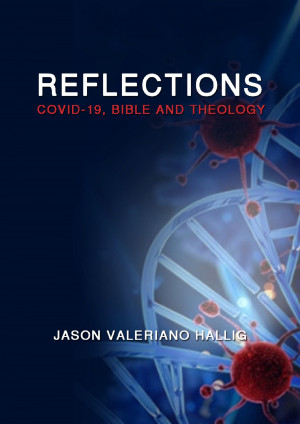As a Christian, a pastor and a professor, the gospel
is at the heart of what I do. It defines not only the message I share to
people, my students, and my congregation, but it also defines my life and my
vocation. The gospel is the single news or that one thing that affects
everything in my life—my past, my present, and yes even my future. This is why I
have given serious thoughts and studies about this one thing. Am I willing to lose
all things for this one thing? As Paul writes,
But whatever were gains
to me I now consider loss for the sake of Christ. What is more, I
consider everything a loss because of the surpassing worth of
knowing Christ Jesus my Lord, for whose sake I have lost all things. I
consider them garbage, that I may gain Christ and be found in him, not
having a righteousness of my own that comes from the law, but that which
is through faith in[a] Christ—the
righteousness that comes from God on the basis of faith. I want to
know Christ—yes, to know the power of his resurrection and participation
in his sufferings, becoming like him in his death, and so, somehow,
attaining to the resurrection from the dead. (Philippians 3:7-11).
Why the gospel? It is because it is this gospel
that has given me Jesus and and the kingdom God offers to those who believe in
Jesus.
I
grew up believing that this gospel offers me salvation inclusive of forgiveness
from all my sins and, most of all, a slot in heaven. Who wouldn’t want salvation?
Indeed, we all have sinned and fallen short of the glory of God (Romans 3:23). I was taught
that I needed to surrender all of my sins to Jesus, who is my Savior—the one who
died for my sins. At 14 years of age, I decided to give my life to Jesus and surrendered all my sins to him, at least the ones I knew. That was the
beginning of my journey with the gospel.
I
felt called to the ministry and so decided to go to the Bible College, and
there I began my serious engagement with in-depth studies of the Bible and
likewise the sacred task of doing theology. My time at the Bible college
confirmed what I have been taught about the gospel and my need for freedom from
sin. I loved our denominational distinctive that puts emphasis on the
possibility of being freed from sin. I have gained more knowledge and grew more
in my faith. As a result I decided to go further in my ministerial preparation
and took Master of Divinity. This time I have become a minister and preacher of
the word. I have learnt the “gospel” and how to preach it to people and my
congregations. I saw how my gospel knowledge affects not only life but also the
ministries I do. I faithfully called on people to seek forgiveness and freedom
from sin.
My
desire for knowledge continued to grow especially when I was asked to teach at
Bible Colleges and Seminaries. I needed more knowledge to be fully equipped for the
opportunity of teaching. But this time, my studies were more focused. Since I
had excelled in learning the New Testament Greek, I decided to just go ahead and
study the New Testament. My studies had led me to more in-depth knowledge of the
message of the New Testament. The narrower I got in my studies the broader the
subjects have become to me. I had to study not only the New Testament but also the
Old Testament and even the things in between like the Second Temple Judaism.
Added to this was my growing desire to know more about theology, which also led
me to study philosophy.
It
was during these higher studies that things began to change. My understanding
of the gospel got broadened, deepened, and widened. Slowly I began to discover
that the gospel is more than forgiveness of sins and more than freedom from the
power of sin. So, I asked, “What is the gospel?” The gospel then has become the
subject of my rigorous studies. I did lots of readings and researches on the
gospel.
To
cut the story short, I discovered that the gospel I had known and had been
preaching was too small. Of course, the gospel that I have discovered does not
negate the reality of sin—both forgiveness and freedom from sin. It is just
that it is too small. If we are to be faithful to the gospel as presented to us
in the Holy Scriptures, then we need to reframe our gospel. I began doing a
reframation of the gospel one step at a time. I engaged in discussions with
scholars through books and seminars. My sermons and lessons began to change
toward the the cosmic grandeur of the biblical gospel.
But
in order to offer this discovery or rather rediscovery to more people, I needed
to write it down. I did and began sharing it to churches through seminars. Some
of those who saw what I saw have asked me to write a book on it and make it
available to the body of Christ. In fact, the subtitle, “Reframing the Gospel
Toward Its Cosmic Grandeur,” came out of our discussion with the facebook group
I am a part of. The title came as borrowed one from the book of J. B. Philip’s
entitled, “Your God Is Too Small.”
This book is a product
of my life’s journey with gospel itself. The knowledge I have received and its
evolution in and through my theological education have brought me this far and
have given birth to this book. May my joyful rediscovery of the good news of
Jesus Christ and the Kingdom give you also that joy and realization that the
gospel we have known is too small and that it needs a reframing toward its
indeed cosmic grandeur. I invite you journey with men and to rediscover the
gospel we have accepted and loved as Christians and as ministers of the gospel
of Jesus Christ.







